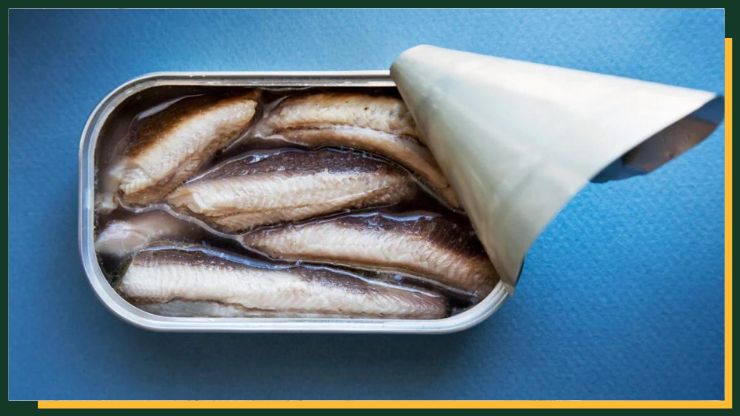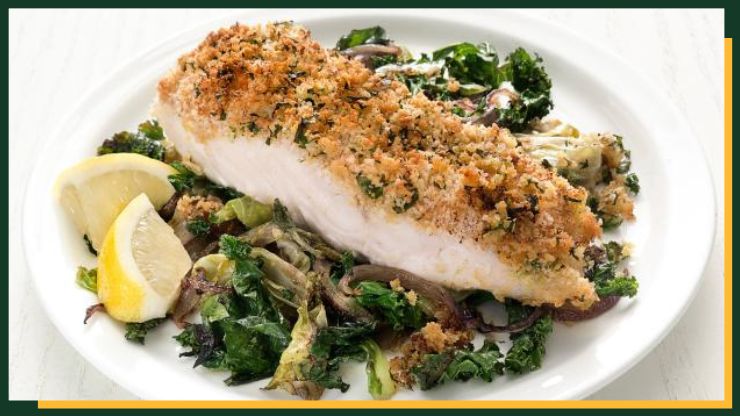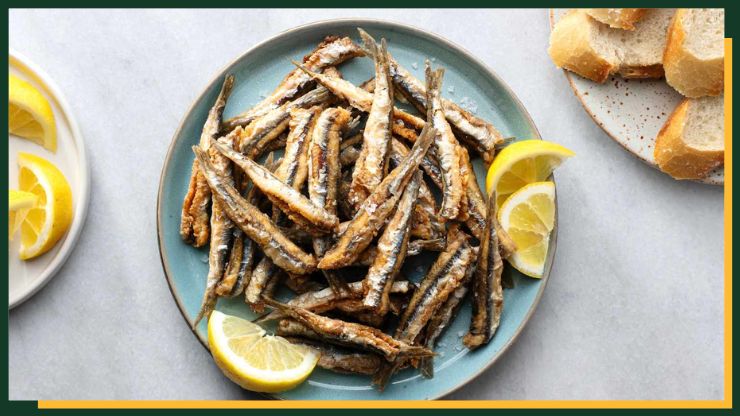Types of Fish to Eat for a Healthy Diet – Incorporating fish into a healthy diet is a wise choice due to its numerous nutritional benefits. Fish is an excellent source of high-quality protein, essential omega-3 fatty acids, vitamins, and minerals. Not all fish are created equal, though, and the types of fish you choose can significantly impact your health.
This outline delves into the various categories of fish that can be part of a nutritious diet, including fatty fish, lean fish, shellfish, and other varieties. Each category offers distinct health advantages, and we’ll explore examples and preparation tips for each.
It’s important to consider sustainability, potential contaminants, and freshness when selecting fish. To help you get started, we’ll also provide recipe ideas and meal planning tips to make fish a delicious and integral part of your balanced diet.
By the end of this guide, you’ll have a comprehensive understanding of the diverse options available, enabling you to make informed choices for a healthier lifestyle.
Table of Contents
ToggleImportance of including fish in a healthy diet
Including fish in a healthy diet is of paramount importance for several compelling reasons:
- Rich Source of Nutrients: Fish is a nutrient-dense food, packed with essential vitamins and minerals such as vitamin D, vitamin B12, iodine, selenium, and various omega-3 fatty acids. These nutrients play crucial roles in maintaining overall health, supporting immune function, and promoting proper growth and development.
- High-Quality Protein: Fish is an excellent source of high-quality, lean protein. It provides the body with essential amino acids needed for muscle development, tissue repair, and overall bodily functions.
- Omega-3 Fatty Acids: Fatty fish like salmon, mackerel, and sardines are renowned for their abundant omega-3 fatty acids, including EPA and DHA. These fatty acids are associated with numerous health benefits, such as reducing the risk of heart disease, improving brain health, and reducing inflammation.
- Heart Health: Regular fish consumption, especially fatty fish, can help lower the risk of cardiovascular diseases by reducing triglyceride levels, improving cholesterol profiles, and maintaining healthy blood pressure.
- Brain Function: Omega-3 fatty acids found in fish have been linked to improved cognitive function, memory, and reduced risk of cognitive decline, making fish a brain-boosting food.
- Eye Health: The omega-3 fatty acids, as well as nutrients like vitamin A, found in fish are beneficial for eye health and can reduce the risk of age-related macular degeneration and dry eye syndrome.
- Reduced Inflammation: The anti-inflammatory properties of fish can help alleviate symptoms of chronic inflammatory conditions, such as arthritis.
Also, Read – Best Low Carb Fruits for a Healthy Lifestyle
Types of Fish to Eat for a Healthy Diet
Salmon

Salmon is a highly nutritious fish rich in omega-3 fatty acids, essential for heart health. It’s an excellent source of protein, vitamins, and minerals, including vitamin D and selenium.
This pink-fleshed fish can be grilled, baked, or pan-seared, making it a delicious and versatile addition to a healthy diet. However, it’s essential to choose sustainably sourced salmon to minimize environmental impact.
Mackerel

Mackerel is a fatty fish packed with omega-3 fatty acids, which promote heart health and reduce inflammation. It’s a flavorful, oily fish that offers a rich source of protein, vitamin D, and essential minerals like selenium.
Mackerel’s bold taste makes it a favorite in various cuisines. It can be grilled, smoked, or canned, providing a convenient and nutritious option for your diet. However, due to its higher mercury content, it’s advisable to consume mackerel in moderation, particularly for pregnant women and children.
Sardines

Sardines are small, oily fish that deliver a powerful punch of nutrients. They’re loaded with omega-3 fatty acids, which support heart and brain health. These little fish are also rich in calcium, vitamin D, and protein.
Sardines are often available in convenient canned form, making them an easy and affordable addition to your diet. Their flavor is robust, and they work well in various dishes like salads, pasta, or as a topping on crackers.
Additionally, sardines are typically low in contaminants like mercury, making them a safe and sustainable choice for regular consumption.
Also, Read – Healthy Flight Snacks
Trout

Trout is a freshwater fish that offers both delicious taste and nutritional benefits. It’s a good source of high-quality protein, B vitamins, and essential minerals like phosphorus. Rainbow trout and brook trout are common varieties.
In addition to its nutrient content, trout provides omega-3 fatty acids, which support heart and brain health. These fish can be prepared in various ways, such as grilling, baking, or pan-searing, and their mild flavor makes them a versatile option for those who prefer milder-tasting fish. When sourced sustainably, trout can be a healthy and eco-friendly addition to your diet.
Tuna

Tuna is a popular, lean fish known for its protein content and versatility in the kitchen. It’s a good source of high-quality protein and provides essential nutrients like selenium and vitamin D. Tuna also contains omega-3 fatty acids, which offer cardiovascular benefits.
However, it’s crucial to choose tuna varieties with lower mercury levels, such as skipjack or albacore, and consume it in moderation due to potential mercury contamination concerns.
Tuna can be enjoyed in a wide range of dishes, from sandwiches to salads, but sustainable sourcing is essential to minimize environmental impact and support healthy oceans.
Don't just scroll, subscribe!
BuzzTrail's unique web-stories are the cure for boredom you've been waiting for.
Herring

Herring is a small, oily fish that’s a nutritional powerhouse. It’s a rich source of omega-3 fatty acids, which promote heart health and reduce inflammation. Herring is also packed with vitamin D, vitamin B12, and essential minerals like selenium.
Often found in smoked or pickled form, it adds a distinctive flavor to dishes and is a staple in many traditional cuisines. These fish are a sustainable choice due to their abundance and shorter life cycle, which reduces environmental impact.
Incorporating herring into your diet can be an excellent way to enjoy the benefits of omega-3s and essential nutrients while supporting ocean-friendly eating practices.
Cod

Cod is a lean, white fish that’s appreciated for its mild flavor and versatility in cooking. It’s an excellent source of high-quality protein and provides essential nutrients like vitamin B12, iodine, and phosphorus.
Cod is low in fat and calories, making it a healthy option for those watching their fat intake. Commonly used in a variety of recipes, from fish and chips to baked dishes, cod can be a blank canvas for different flavors.
It’s important to choose sustainably sourced cod to support responsible fishing practices and maintain healthy fish populations. Including cod in your diet can be a delicious and nutritious choice.
Tilapia

Tilapia is a mild-flavored white fish known for its versatility in cooking. It’s a good source of lean protein, making it a popular choice for those seeking a low-fat, high-protein option. Tilapia also provides essential nutrients, including vitamin B12, phosphorus, and selenium.
While it may lack the omega-3 fatty acids found in oily fish, it remains a nutritious choice. Its mild taste makes it an adaptable ingredient in a wide range of recipes, from grilling to baking and pan-frying.
When sourced responsibly, tilapia can be part of a healthy and sustainable diet, but it’s important to ensure its quality and sourcing for the best nutritional value.
Mahi-Mahi

Mahi-Mahi, also known as the “dolphinfish” or “dorado,” is a lean, white-fleshed fish with a slightly sweet flavor and a firm texture. It’s a good source of high-quality protein and provides essential nutrients, including vitamin B3, vitamin B6, and selenium.
Mahi-Mahi is often sought after for its mild taste, making it a versatile option for grilling, pan-searing, or baking. Its firm texture also allows it to hold up well in various dishes.
When sustainably sourced, Mahi-Mahi is a delicious and nutritious addition to your diet, and it’s an excellent choice for those looking for a lean protein source with a hint of sweetness.
Anchovies

Anchovies are small, strongly flavored, and highly nutritious fish often used as a savory flavor enhancer in various dishes. They’re rich in omega-3 fatty acids, providing cardiovascular benefits and reducing inflammation.
These tiny fish are also packed with essential nutrients, including calcium, vitamin D, and selenium. Anchovies are commonly found in the form of fillets or anchovy paste and are used as a key ingredient in dishes like Caesar salad dressing, pasta sauces, and pizza toppings.
While their potent taste might not be for everyone, incorporating anchovies into your diet can add a burst of umami and a significant dose of essential nutrients to your meals.
Conclusion
In conclusion, fish is a nutritional powerhouse that offers a myriad of health benefits, from heart and brain health to providing essential nutrients. It’s a versatile and delectable addition to a healthy diet.
By making informed choices, considering sustainability, and being mindful of potential contaminants, you can enjoy the advantages of fish consumption while supporting responsible environmental practices.
Whether you prefer fatty fish, lean options, or shellfish, integrating a variety of fish into your meals can contribute to your overall well-being and help you maintain a balanced and nutritious diet.
FAQs
What are the health benefits of eating fatty fish?
What are the health benefits of eating fatty fish?
Fatty fish, such as salmon and mackerel, are rich in omega-3 fatty acids, which can reduce the risk of heart disease, improve brain health, and reduce inflammation in the body.
What are the health benefits of lean fish?
What are the health benefits of lean fish?
Lean fish, like cod and tilapia, are low in fat and calories but high in protein. They provide essential nutrients and support muscle growth and repair.
Are shellfish a healthy choice?
Are shellfish a healthy choice?
Yes, shellfish like shrimp and crab are nutritious. They are low in fat, rich in protein, and contain essential minerals like selenium. However, people with shellfish allergies should avoid them.

